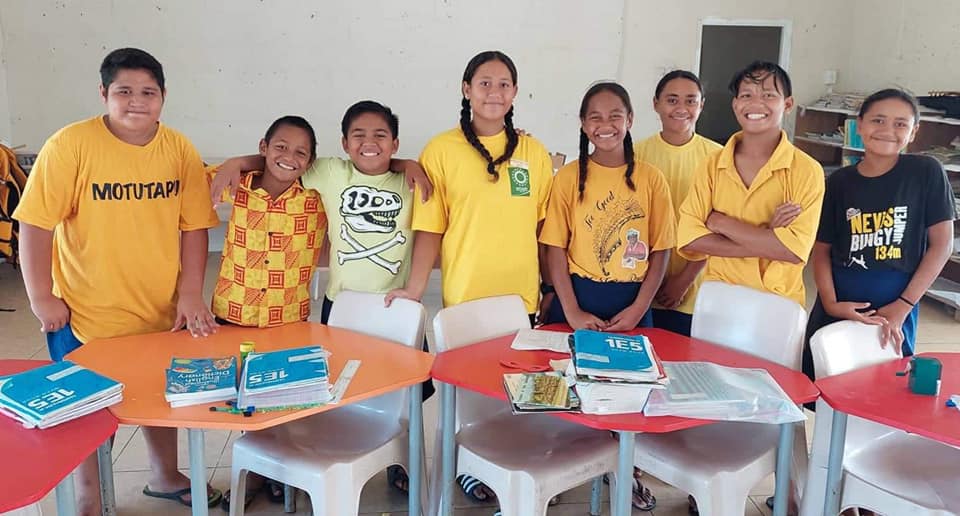Penrhyn students get into the spirit of Literacy Week
Tuesday 7 September 2021 | Written by Melina Etches | Published in Education, National, Outer Islands

The Tetautua school years 4 to 9 students of Penrhyn island dressed in yellow to celebrate the first day of Literacy Week. From left: Retire Gifford, Leboama Mamia, Cina Makakea, Veronica William, Ruaiti Solo, Sevatenaku Faira, Patrick Mamia and Ngarima Faira. Picture: APII NAPA/21090605.
The Tetautua and Omoka school students of Penrhyn (or Tongareva island), the northernmost island of the Cook Islands group, yesterday celebrated the start of the ‘Literacy Week’.
Apii Napa, the principal of the two schools, says the theme for this year’s Literacy Week is ‘Let’s Say it with Sounds’.
“What’s important is, learning is fun and the children are happy and enjoying their lessons.”
Tomorrow, as part of the weeklong celebrations, the students will start to weave their own hats from “rito”, and Napa is looking forward to their creations.
Tetautua and Omoka are islets that lie 12 kilometres apart at opposite ends of its lagoon. The locations provide a unique challenge for the principal to manage the two schools with the lagoon as the highway or when communications are hindered.
The focus of Literacy Week is on the introduction of phonics into schools in the Cook Islands. The international theme of Literacy Week is “Literacy for a human-centred recovery: narrowing the digital divide”.
Phonics is the foundation of learning to read, and professional development and support has been provided to teachers to enable them to integrate this into their classroom programmes, said the Ministry of Education primary literacy advisor Liz Lawson.
In a statement Lawson said: “Letters stand for sounds in spoken language. If you think of words and sentences as a code, then when you read, you’re breaking the code. You’re matching letters to sounds so that you can sound out words. That’s decoding – and that’s what phonics is all about.”
“Phonics is the link between what we say and what we can read and write. Teaching phonics is helping students to identify the sounds of written letters and then putting those letters/sounds together to form words.”
Phonics is important in order for children to understand what they read, “they must be able to do it quickly and automatically, without stumbling over words”, Lawson noted.




































